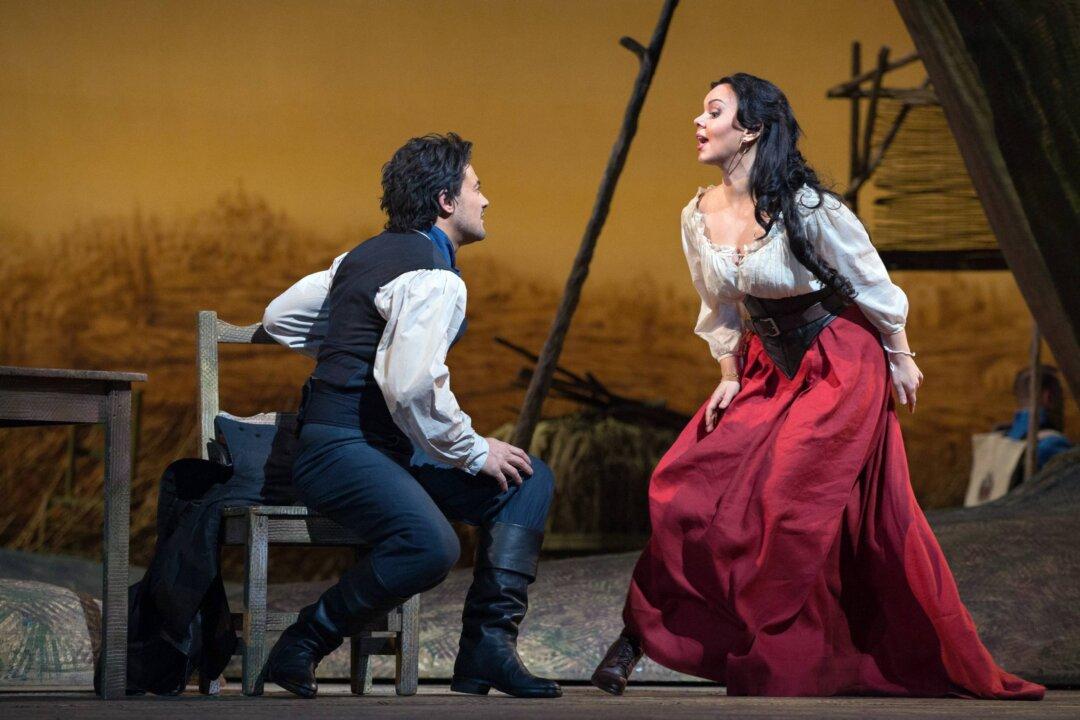NEW YORK—This season, the Metropolitan Opera has been performing a number of the works of Gaetano Donizetti (1797–1848): the dramatic “Three Queens” trilogy and two of his most popular comic operas. Recently, “Don Pasquale” opened to charm audiences, and now the equally entertaining “L‘Elisir d’Amore” (“The Elixir of Love”) has arrived.
Bartlett Sher’s production opened the Met season in 2012. The new cast is just as winning as the earlier one.

Vittorio Grigolo as Nemorino and Aleksandra Kurzak as Adina in Donizetti's "L'Elisir d'Amore." Marty Sohl/Metropolitan Opera






